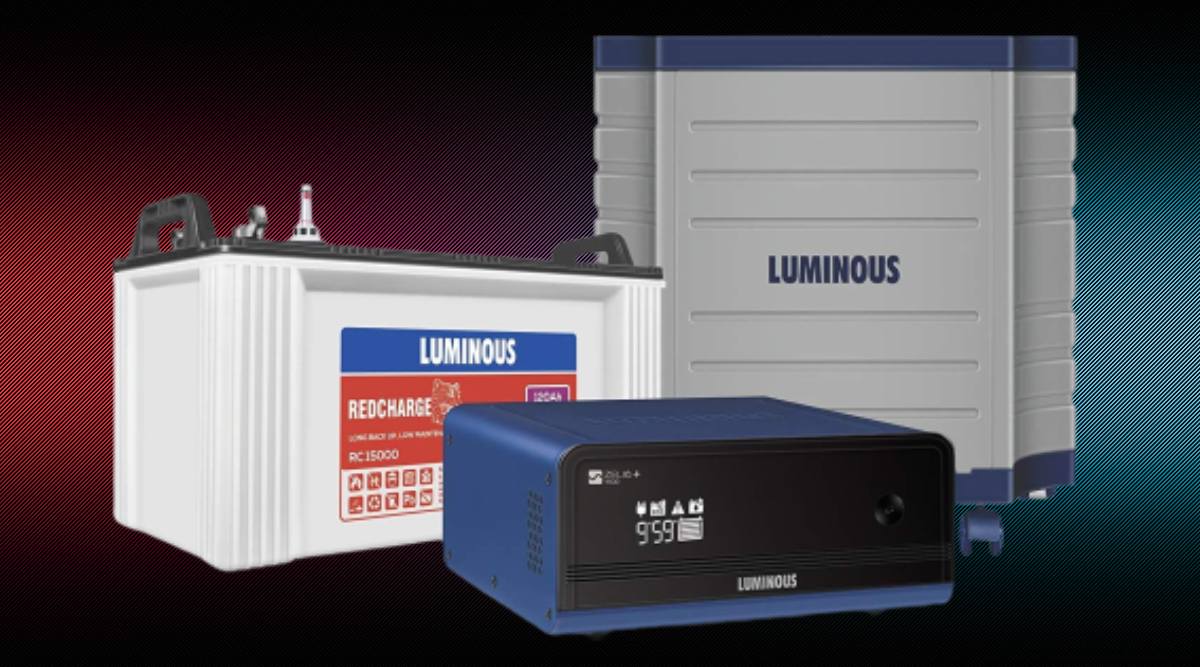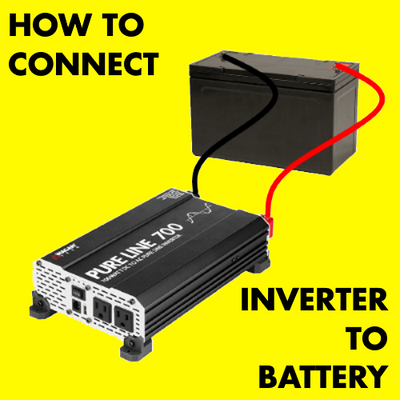To determine the size of the battery for an inverter, consider the power consumption and duration needed. A larger battery capacity is required for higher power requirements and longer backup durations.
The size of the battery should match the power needs of the appliances connected to the inverter. Factors such as the load’s wattage, expected duration of use, and frequency of power cuts should all be taken into account when selecting the appropriate battery size.
Oversizing the battery ensures ample backup power during extended outages, while under sizing may lead to insufficient backup power. It’s essential to strike a balance to meet the specific needs efficiently. Ultimately, the right battery size will ensure reliable power backup for your devices.
Contents
Power Needs
When setting up an inverter system, it’s crucial to accurately determine the power needs to ensure that you have a battery with the right capacity. This involves calculating your daily energy consumption and identifying peak load requirements.
Calculating Daily Energy Consumption
To calculate the daily energy consumption, list all the electrical appliances you plan to run on the inverter. Then, note down the power rating of each appliance in watts and the average number of hours you intend to use them each day.
Multiply the power rating by the hours of use for each appliance and sum up the results to get the total daily energy consumption in watt-hours.
Identifying Peak Load Requirements
Peak load refers to the maximum power demand of the appliances at any given time. Identify the appliance with the highest power consumption and ensure the inverter and battery can handle this peak load. It’s important to have a battery with sufficient capacity to meet these peak demands to avoid overloading the system.

Credit: indianexpress.com
Battery Capacity And Its Importance
Battery capacity is crucial for the performance of an inverter. Higher capacity means longer backup power.
Choosing the right capacity prevents power shortages during outages. It depends on the power consumption needs.
Types Of Batteries For Inverters
- Lead-acid batteries
- Lithium-ion batteries
- Gel batteries
Matching Battery Size to the Inverter
Matching the size of the battery to the inverter is crucial in ensuring optimal performance. It’s important to consider the power needs, the inverter’s capacity and the battery’s amp-hour rating to determine how big a battery you need for the inverter.
Calculating the Right Battery Size
To ensure the proper functioning of the inverter, it is important to choose the right battery size. The battery size you need depends on the power requirement of the devices you want to run. You can calculate the right battery size by first determining the total power consumption of the devices you want to run.
To calculate the total power consumption, you need to know the wattage of each device and the number of hours you want to run them. Once you have this information, you can use the following formula:
Total Power Consumption = (Wattage of Device 1 x Hours of Use) + (Wattage of Device 2 x Hours of Use) + … + (Wattage of Device n x Hours of Use)
Once you have calculated the total power consumption, you can choose a battery with enough capacity to meet the requirements. The capacity of a battery is measured in ampere-hours (Ah), and it represents the amount of energy that the battery can store.
To determine the battery capacity you need, divide the total power consumption by the voltage of the inverter. For example, if the inverter has a voltage of 12V and the total power consumption is 1000 watts, you will need a battery with a capacity of at least 83.3 Ah (1000/12).
Tips for Optimizing Battery Performance
To get the most out of the inverter battery, you need to optimize its performance. Here are some tips to help you do that:
1. Choose the right battery type: There are different types of batteries available, including lead-acid, lithium-ion, and nickel-cadmium. Each type has its own advantages and disadvantages, so choose the one that best suits your needs.
2. Keep the battery charged: Regularly charge your battery to ensure it is always ready to use. A fully charged battery will also last longer than a partially charged one.
3. Monitor the battery temperature: Batteries perform best at room temperature, so keep an eye on the temperature of the battery. If it gets too hot or too cold, it can affect its performance and lifespan.
4. Use the right charger: Use a charger that is designed for the battery type and voltage. Using the wrong charger can damage the battery and reduce its lifespan.
In conclusion, choosing the right battery size for the inverter is essential for its proper functioning. By calculating the total power consumption of the devices and choosing a battery with enough capacity, you can ensure that the inverter runs smoothly. Additionally, optimizing the performance of the battery will help it last longer and perform better.

Credit: wagan.com
Frequently Asked Questions
Here are some FAQs about the battery size –
What Size Battery Do I Need For My Inverter?
For a typical home, a 12-volt battery with 100Ah capacity should suffice.
How Do I Calculate The Battery Size For My Inverter?
Multiply the power consumption (in watts) by the backup hours, then divide by the battery voltage.
What Happens If The Battery Size Is Too Small For The Inverter?
It may lead to frequent deep discharges, shortening the battery life.
Can I Use A Car Battery For My Inverter?
While possible, car batteries are not designed for deep discharges like inverter batteries.
How Long Will A Battery Last With An Inverter?
Battery lifespan varies, but proper maintenance can extend it to 3-5 years.
Conclusion
To sum up, choosing the right battery size for your inverter is crucial for ensuring uninterrupted power supply. By considering factors like power requirements, load capacity, and backup duration, you can determine the ideal battery capacity. Remember to invest in high-quality batteries to maximize performance and longevity.
With the right battery, you can enjoy the benefits of a reliable and efficient inverter system.